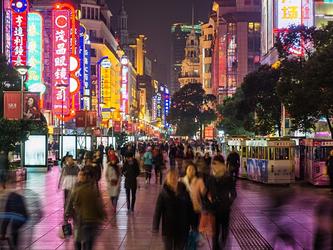Data from the front line – research in Hong Kong
If Hong Kong needed an informal motto, it could do worse than choose ‘work hard, play hard’. Commerce is the true religion of the region. With one in seven of its 7.36m residents classed as a millionaire and the fourth highest number of billionaires anywhere in the world, for many, disposable income levels are as high as the sky-scrapers dominating the landscape.
This devotion to business makes Hong Kong endlessly insightful as a region, but equally has engendered a sometimes tough environment for conducting research.
With so many wealthy people in such a small area ( 2,754 square kilometres), Hong Kong offers great opportunities for researching affluence; an ideal region for discovering trends and buying habits for luxury goods; or for gaining insights into innovation. Just as Singapore influences Malaysian and Indonesian markets, Hong Kong is a major influencer for other areas of Asia such as China, Taiwan and to a certain extent, Japan.
This is exacerbated by the fact that Hong Kong is trusted to be a source of legitimate luxury products, as opposed to the replicas regularly found on the mainland – and so Hong Kong holds a de facto ‘early adopter’ status within Asia. Insight professionals looking for stories and anecdotes on wealth and luxury in Asia need look no further.
The commitment to working life combined with its geo-political history means that Hong Kong is also a hotbed for logistics and communication – playing Cupid between demand and supply. With a complex financial ecosystem, Hong Kong plays a key role in looping together funding for some of the Chinese-speaking world’s most ubiquitous tech giants, like Baidu, Alibaba and Tencent.
With many of these firms having substantial operations (and indeed global headquarters) in Shenzhen, they can take advantage of the Shenzhen-Hong Kong technology cluster, which was ranked the world’s second largest based on the Global Innovation Index 2018, after Tokyo-Yokohama. What’s more, research and the expenditure on research and development as a percentage of the gross domestic product is expected to be doubled in five years from 2017, providing an exciting opportunity for researchers in the region.
Although in theory conducting research on wealth and innovation in Hong Kong is a great idea, accessing primary data can be a problem. The average working week in the region is 50 hours, meaning that residents are often as committed to protecting their personal lives as they are to their professional ones. With free time so limited, researchers have to work hard to persuade respondents to take part in studies. Focus groups, for example, are usually completed at weekends because most consumers are simply too busy during the week, but recruitment can be a problem when people don’t want to give up their precious hours of freedom. Consequently, data collection can be expensive because incentives have to be sufficient to change behaviours.
However, Hong Kong has one of the highest social media penetrations in the word – in 2017, 75% of residents had Facebook and 66% were active on social media on a mobile device – and consistently ranks as one of the countries with the fastest online connections worldwide. This means researchers can encourage remote responses from consumers, even when they can’t get them in the room.
Greg Clayton is managing director of Kadence International

We hope you enjoyed this article.
Research Live is published by MRS.
The Market Research Society (MRS) exists to promote and protect the research sector, showcasing how research delivers impact for businesses and government.
Members of MRS enjoy many benefits including tailoured policy guidance, discounts on training and conferences, and access to member-only content.
For example, there's an archive of winning case studies from over a decade of MRS Awards.
Find out more about the benefits of joining MRS here.












0 Comments